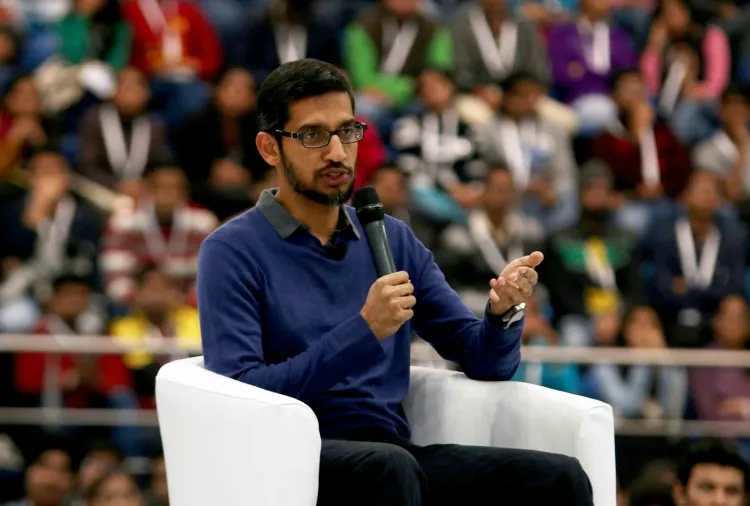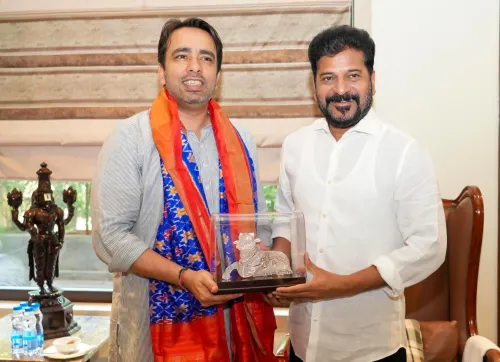How is Google Enhancing AI Safety for Kids and Seniors in India?

Synopsis
Key Takeaways
- Google's new AI tools focus on safety for children and seniors.
- Real-time scam detection helps users avoid fraud without compromising privacy.
- Digital literacy initiatives are essential for user empowerment.
- Financial support for CyberPeace Foundation aims to enhance cybersecurity.
- Research funding in APAC promotes dialogue on AI challenges.
New Delhi, Nov 20 (NationPress) On Thursday, the technology giant Google laid out an extensive safety-oriented strategy for India, focusing primarily on protecting children, adolescents, and senior citizens through its Artificial Intelligence (AI) initiatives.
The renowned US tech firm introduced on-device, real-time anti-scam tools, text watermarking, and digital literacy programs aimed at enhancing the safety and inclusivity of AI for all users.
The Scam Detection feature, powered by Gemini Nano, will be implemented on Pixel phones to assess calls in real time and identify potential scams directly on the device, without recording audio, transcripts, or sharing data with Google, as stated in the company’s release.
This Scam Detection feature is disabled by default, specifically applicable to calls from unknown numbers (not saved contacts), emits a beep to alert participants, and can be deactivated by the user, according to the information provided.
Furthermore, Google announced it would expand the accessibility of SynthID Detector and launch the SynthID text watermarking tool as an open-source element of its Responsible GenAI Toolkit. This watermarking technology assists partners in recognizing AI-generated images and audio.
The company also revealed a grant of $200,000 to the CyberPeace Foundation in India to aid in building capabilities and providing AI-driven cybersecurity tools to combat fraud and scams, establish safer digital learning environments for children and teenagers, and bolster responsible governance in line with the IndiaAI Mission.
Moreover, Google has allocated $1 million to five prominent think tanks and universities across the Asia-Pacific (APAC) region to facilitate vital research and promote significant discussions on the prospects and challenges posed by AI.
“In India, where the digital economy is flourishing, we are developing AI systems focused on maintaining user trust as the nation transitions to AI,” stated Evan Kotsovinos, Vice President of Privacy, Safety, and Security at Google.
“We are adopting a comprehensive approach to safety, integrating protections on both the product and cloud levels, along with digital literacy initiatives to empower users with knowledge and awareness,” remarked Preeti Lobana, Country Manager for Google India.









